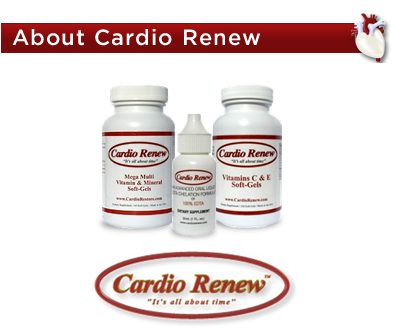Newsletter > April 2010 Vol. 1 Issue 11
Greetings!
Any of us who have been confronted with the diagnosis of a serious health problem have cause to take pause and assess the implications--will I have to adjust my lifestyle, take medication(s), go through a medical procedure? Is it possibly life threatening?Each question a little more difficult and sobering. After this assessment one thing is for sure, we will never again take our health for granted.
In addition to following your doctor's orders, another area in which you can exert personal control and possibly make a sizeable impact on your health and well-being is by thinking positively and having a positive attitude.
Experts say the American public has largely accepted this as fact. But, scientifically speaking, questions remain regarding whether this works, how it would work, and what such a connection would mean for patients who don't get better.
However, there certainly is an appeal to believing that you have some level of control over a debilitating illness. "I think it's part of the American spirit," said James Coyne, director of the behavioral oncology program at the Abramson Cancer Center and professor of psychology at the University of Pennsylvania School of Medicine. "There's this idea that you can succeed and conquer anything, even illness, on the basis of your character."
Though the phenomenon may be a bit complex to trace throughout every disease, Coyne said there is evidence that mood can predict whether someone who has had one heart attack will have another. And he said there is a biological explanation for why this might be possible.
Coyne said scientists know the brain and the immune system communicate. Given that scientists also know the immune system plays a role in inflammation of the arteries, which can play a role in heart attack, it's reasonable to think that heart attacks could be tied back to things going on in the brain.
While the scientific community continues to research this possible natural health aid, we are quite sure bringing a positive attitude to your health issues can't hurt. We hope that discovering Cardio Renew contributes to your positive attitude and thinking--it's safe, affordable and most of all effective. Maybe that caused you to smile; the very symbol of positivity!
Wishing You Good Health, Vitality,

P.S. As always, we value your feedback, so please feel free to send any questions or comments to: newsletter@cardiorenew.com
-----------------------------------------------------------------------------------------------------------------------------

What Your Calcium Score Indicates
After you receive a heart scan, you are given a Calcium Score, which is a numeric representation of the total amount of plaque buildup in your coronary arteries. The number typically ranges from 0 to 1,000, but can be even higher. The higher your number, the more plaque you have in your arteries and the greater your risk. If your score is more than 400, for example, you have an increased likelihood of developing symptomatic heart disease - angina, heart attack, or even sudden death - in the next 2 to 5 years. If your score is more than 1,000, you have a 25 percent chance of having a heart attack within a year, if there is not some form of medical intervention.
The Calcium Score for a 55-Year-Old Man or Woman can be interpreted in the following manner:
Relative Amount of Plaque
- 0-10 Minimal
- 11-100 Moderate
- 101-400 Increased
- 401+ Extensive
There is no absolute way to predict who is going to have a heart attack, but your Calcium Score is an excellent way of predicting the likelihood of it happening to you. Of course, you must also consider other variables beyond your Calcium Score, when predicting the likelihood of a heart attack. For example, if you smoke, a low Calcium Score will not protect you. Smokers tend to have very sticky blood. This can result in a much larger blood clot developing after a plaque rupture than would develop in a nonsmoker. On the other hand, someone with a moderately high Calcium Score can forestall a heart attack indefinitely - or even prevent one entirely - simply by controlling risk factors. And even if your Calcium Score indicates a high likelihood for a heart attack in the near future, if you begin an aggressive prevention program immediately, your level of risk can sharply decline within months. This may include diet and exercise measures, quit smoking, and not drinking alcohol in excess. Also remember that Cardio Renew is very effective at clearing arterial buildups containing calcium deposits and other harmful mineral deposits and toxic heavy metals, which can help reduce your risk of a heart attack.
Walk to Reduce Your Risk of Stroke
April 7th was National Start! Walking Day-people nationwide pledged to get out and walk for at least 30 minutes. Did you take the time to get out and walk? If not, make it your goal for today, tomorrow, and every day following. A 10-30 minute walk is an easy enough pledge to commit to and it may save your life. A recent publication says that women who walk briskly for at least 2 hours a week have a significantly lower chance of suffering from a stroke than their sedentary counterpoints.
"Women who walked at a pace of 3 miles per hour or faster had a 37% lower risk of suffering any type of stroke. Women who walked two or more hours a week had a 30% reduced risk of any type of stroke.
"Physical activity, including regular walking, is an important modifiable behavior for stroke prevention," Jacob R. Sattelmair, MSC, of the Harvard School of Public Health, says in a news release. "Physical activity is essential to promoting cardiovascular health and reducing risk of cardiovascular disease, and walking is one way of achieving physical activity."
Previous research has indicated that people who are physically active generally have a lower risk of stroke than those who are more sedentary.
According to the American Stroke Association, stroke is the third leading cause of death in the United States and the leading cause of adult disability. A stroke is an injury to the brain due to the interruption of the blood supply when an artery becomes blocked, or a blood vessel breaks. This causes destruction of a portion of the brain tissue that can lead to weakness, numbness, paralysis, speech difficulty and confusion.
Uncontrollable risk factors include hereditary, age, gender, and medical history. However, there are a number of risk factors that you can take power over rather than letting them take over you. These include: heavy drinking, smoking, high blood pressure, high cholesterol, poor diet, physical inactivity, and obesity. Consult your physician on ways to get a hold on the controllable risk factors. Smoking cessation aids, treatment facilities, medication, and/or an overhaul of an unhealthy lifestyle may be in order.
Another form of control you can give yourself is to try oral chelation therapy from Cardio Renew. By increasing circulation and reducing blockage in your arteries, you help your blood flow deliver rich nutrients and oxygen to all parts of the body.
The following is from WebMD:
Walking is one of the easiest ways to get the exercise you need to stay healthy.
Experts recommend at least 2½ hours of moderate activity (such as brisk walking, brisk cycling, or yard work) a week. It's fine to walk in spurts of 10 minutes or more throughout your day and week.
5 Key points:
- Before you start, talk with your doctor to make sure it's okay for you to begin a walking program.
- Start with a short-term goal. For example, walk for 5 or 10 minutes every day. Or increase your number of steps by 300 to 500 each day.
- Start with a short-term goal. For example, walk for 5 or 10 minutes every day. Or increase your number of steps by 300 to 500 each day.
- After you've made walking a habit, set a longer-term goal. You may want to set a goal of walking briskly for at least 30 minutes a day or work up to 10,000 steps a day. You can try to do this 5 days a week or more.
- You can wear a pedometer to track your steps each day.
- To stay motivated, find a walking partner, such as a family member, friend, or coworker. Daily dog walks are also a great way to keep up your walking routine.

Cardio Renew Inc. is a family owned and operated company located in Minnesota. Cardio Renew was developed to offer you safe, effective and economical oral liquid EDTA chelation programs. Our #1 goal is to provide you quality products at an affordable price, while supplying the great customer service that you need and deserve.Here are a few items that we feel are important to the success of your oral chelation program:
- Quality Product-We purchase our products in liquid form and have our formulas blended, bottled, labeled and tamper-evident sealed at a professional manufacturing facility. This ensures you receive consistent, high quality products that provide safe and effective chelation therapies.
- Customer Service-Our goal is to answer e-mails, return phone calls and ship orders within 1 business day. Most times within a few hours or less.
- Best Value-Because Cardio Renew is a family based business, we keep our overhead and operating costs at a minimum. We do not promote sales, discounts or specials. We offer the best price to everyone, all year.
- No Multi-Level Marketing-We know that this not only raises the cost of products, but also takes away from the quality of customer service that you receive. We believe in helping our customers, not just making a sale.
- Honesty-We will always be truthful with our customers. We don't believe in scare tactics or deceptive marketing practices. We are an honest company, that takes pride in selling quality products, at an affordable price.
We believe in our products and programs and sincerely care about our customers. We truly feel that Cardio Renew can improve your health and therefore the quality of your life.
The 5 Foods You Should Eat Everyday
Eating right on a budget can be a challenge, but it's certainly not impossible. Consider this your cheat sheet to the 5 inexpensive foods you should eat everyday for optimum health.
- Leafy greens
Medical experts call them one of nature's miracle foods. Leafy greens like Swiss chard and kale are high in nutrients like folate and vitamins A and C that can lower your risk of cancer. Just one cup of dark, leafy greens a day could also prevent diabetes and high blood pressure.
- Nuts
Many nutritionists recommend nuts like almonds, cashews and walnuts because they're high in natural fiber. Fiber slows your digestive process, keeping hunger and unhealthy mid-afternoon snacks at bay. Goodbye vending machine runs!
- Onions
Studies show that consuming onions on a regular basis may reduce symptoms of asthma and the risk of developing stomach cancer. Add them to soups and stir-fry, and just remember -- the stronger the onion, the greater the health benefit.
- Whole grains
Refined grains, like white rice and pasta, have lost 90% of their nutritional value through the refining process. As if that weren't reason enough to choose whole grains like brown rice, quinoa and whole oats, a recent study showed that a diet rich in whole grains actually flattens your belly by reducing fat storage in your lower abdominal region.
- Yogurt
Making yogurt part of your daily eating routine can improve your digestion -- if you're buying the right stuff. Check that the label lists "active cultures" to make sure you're getting healthy probiotics, and pick a yogurt rich in vitamin D to prevent osteoporosis.

 ALL Packages and Prices
ALL Packages and Prices


